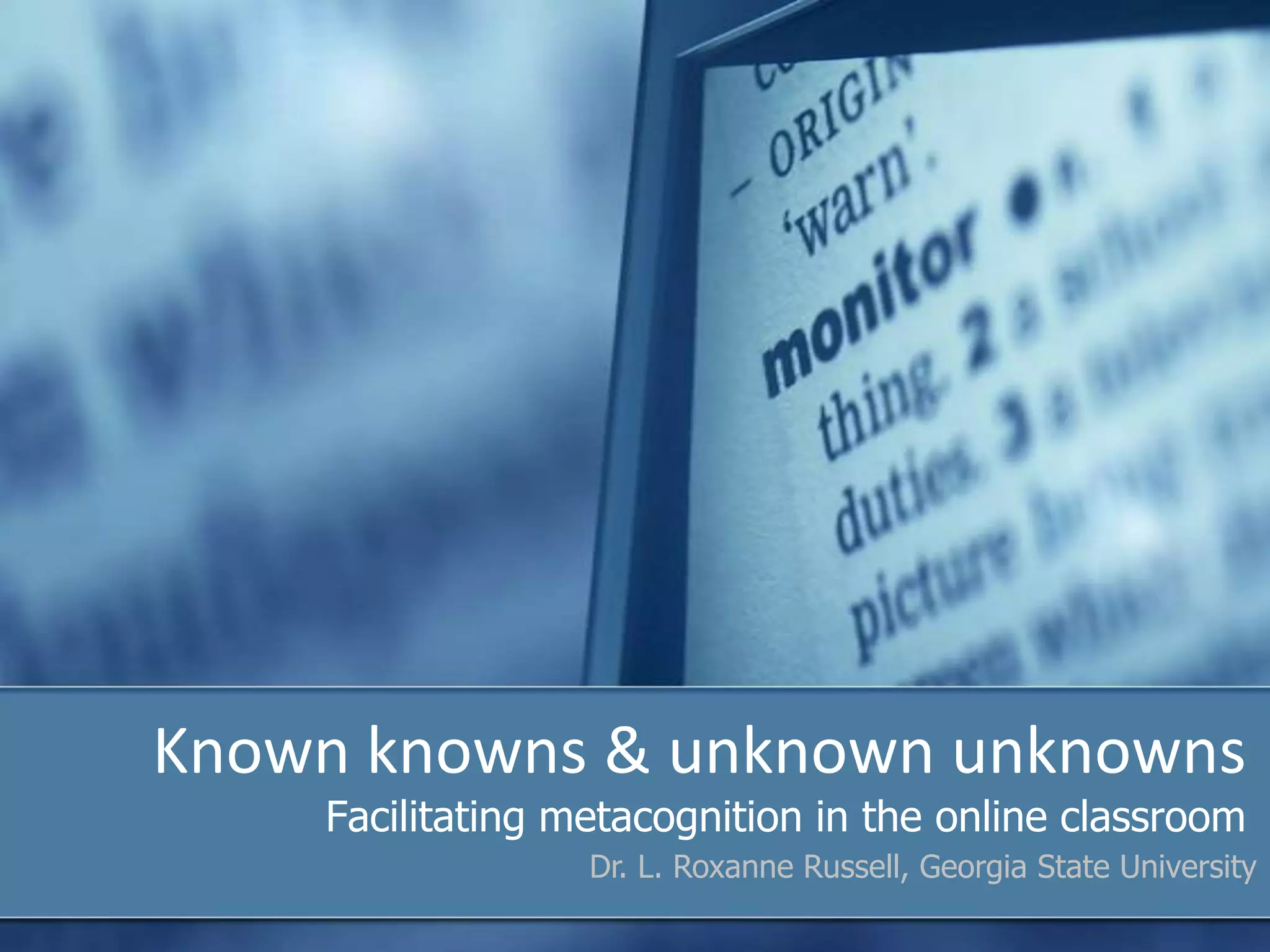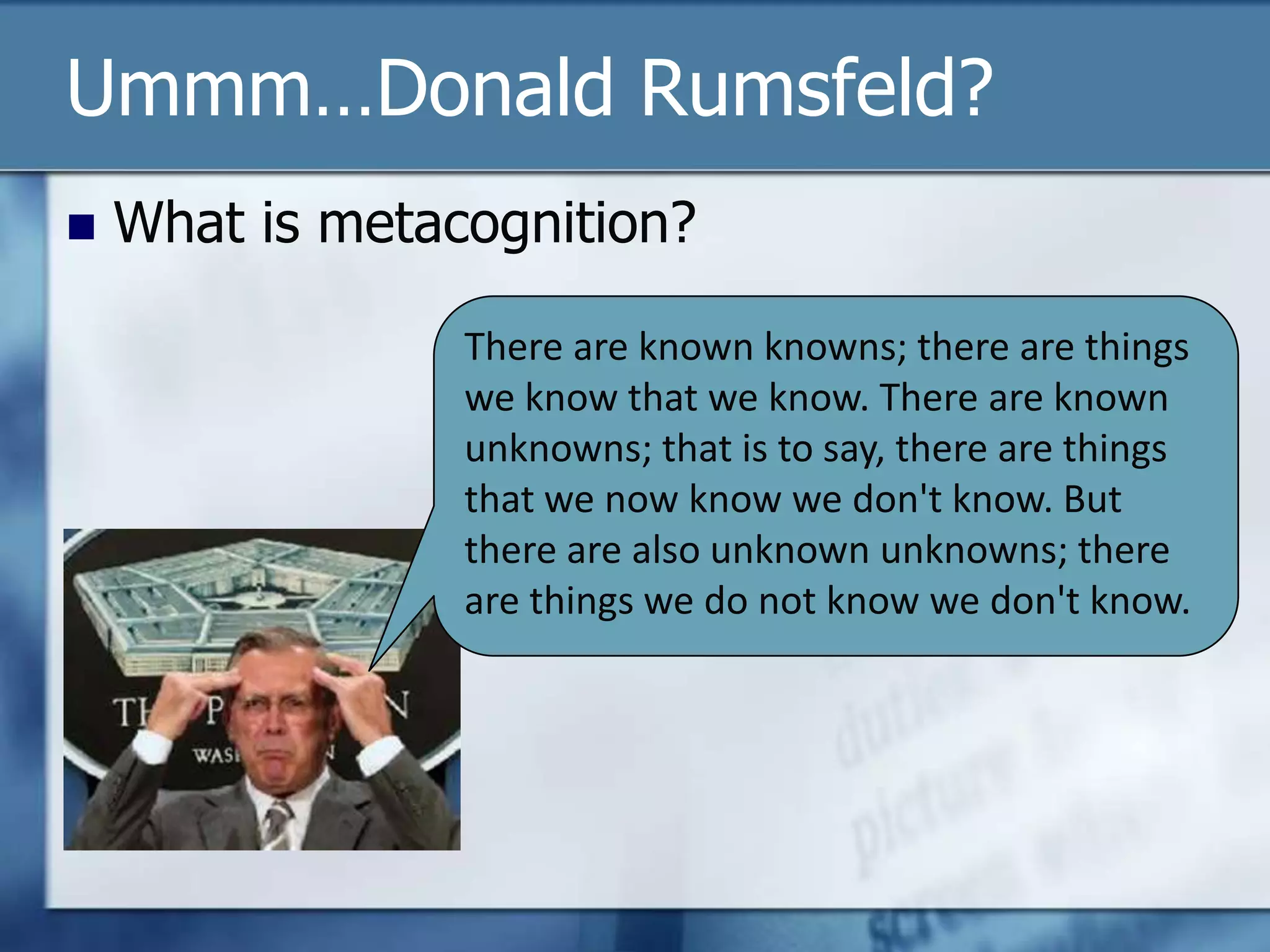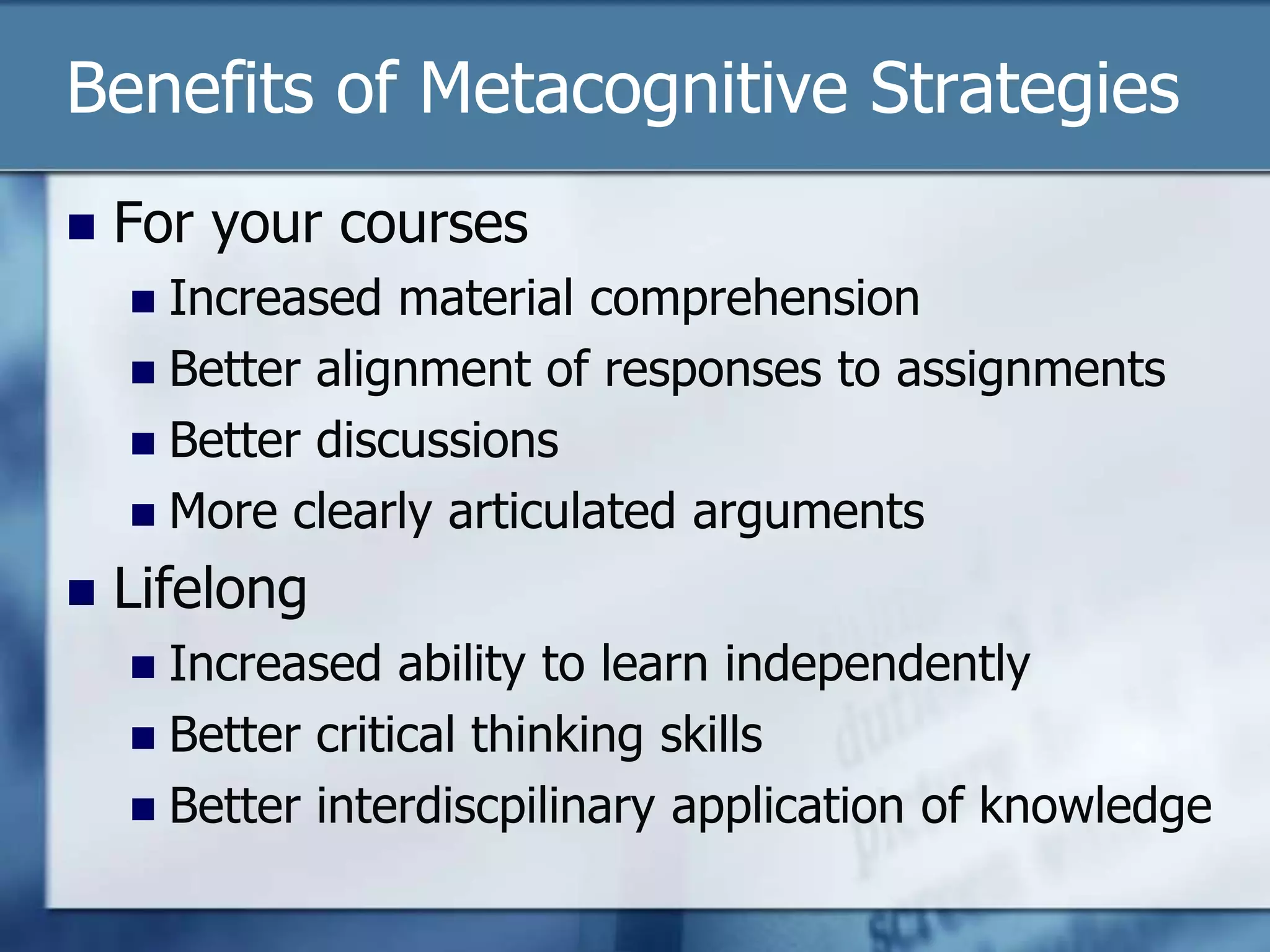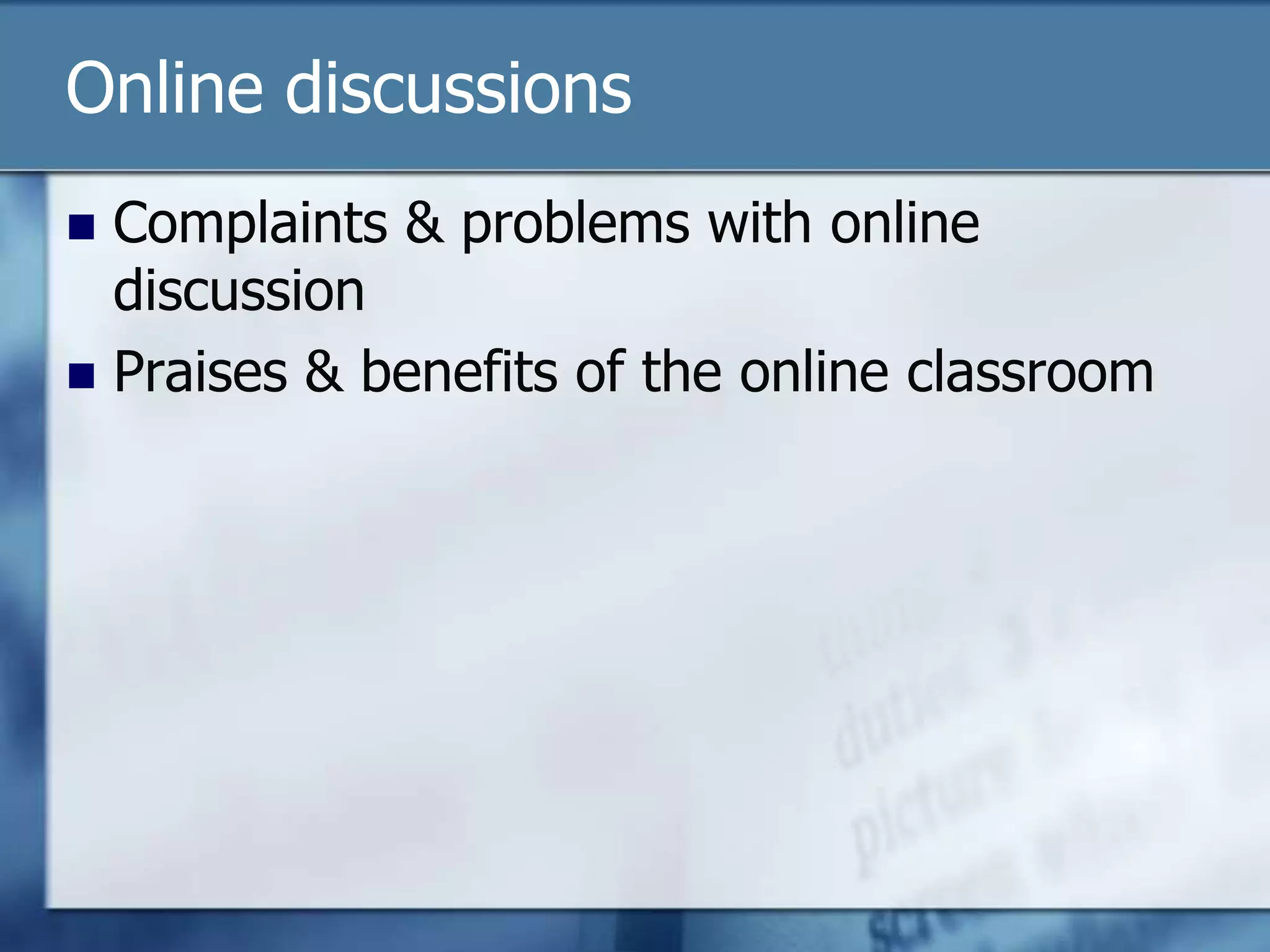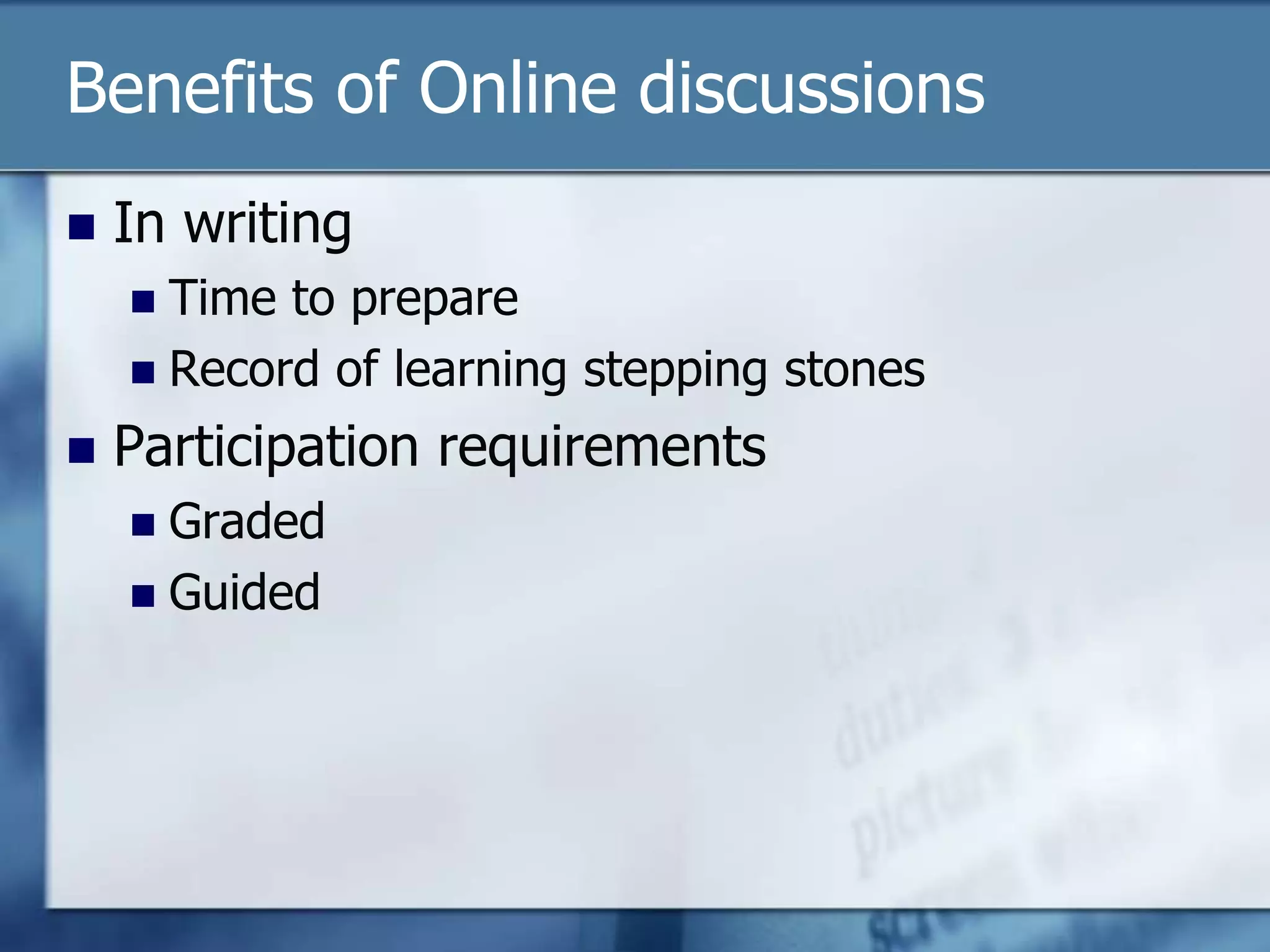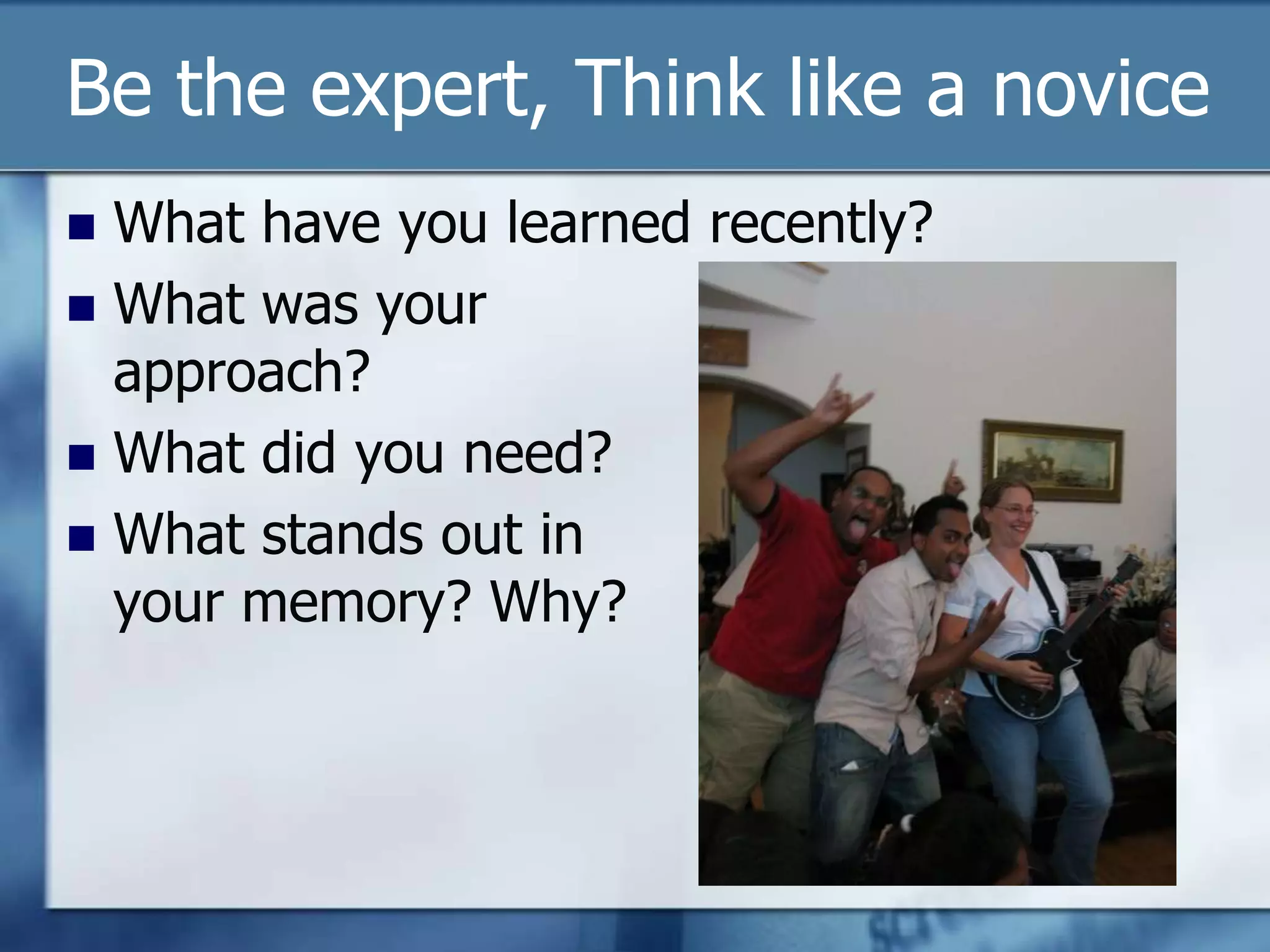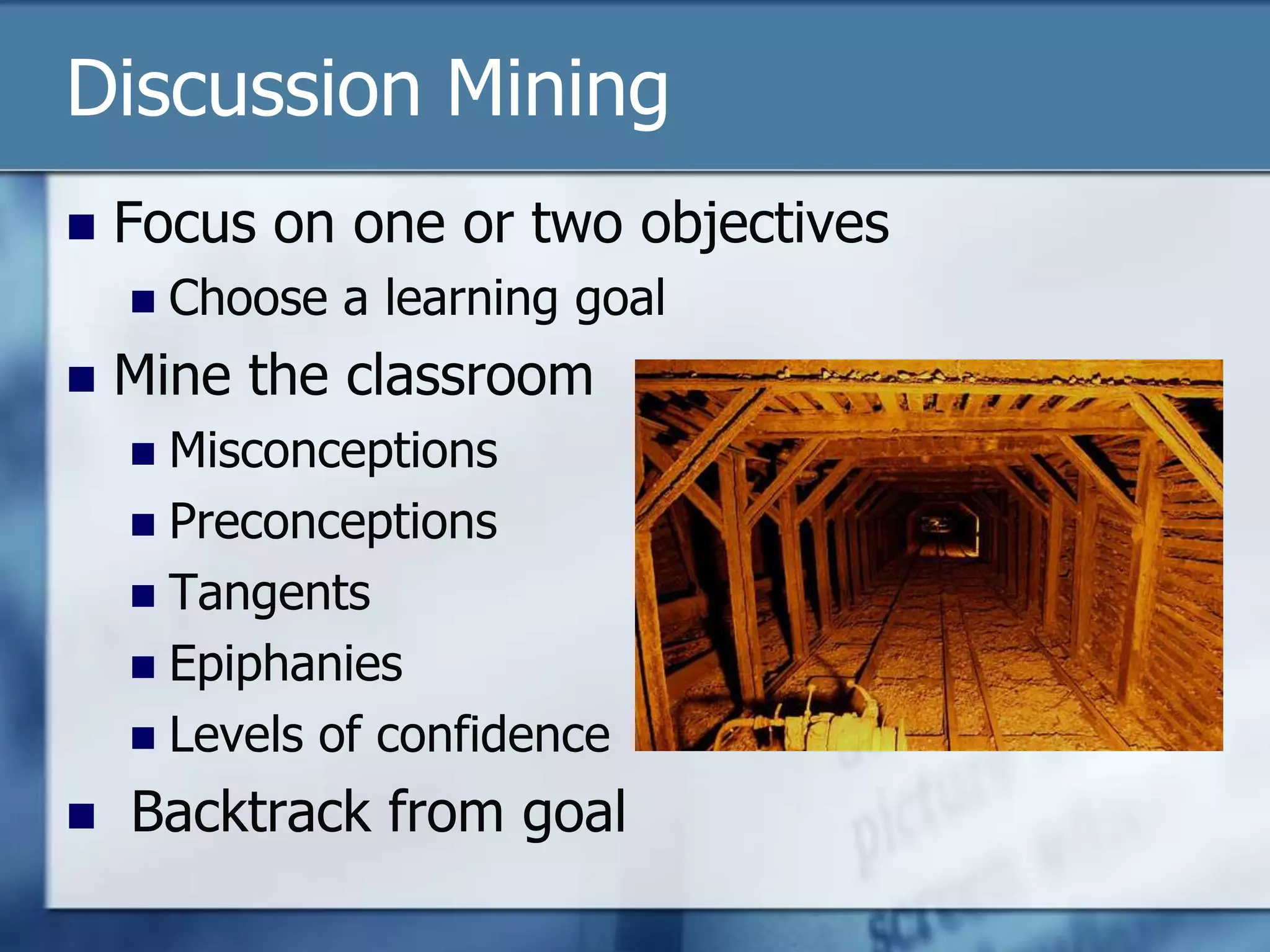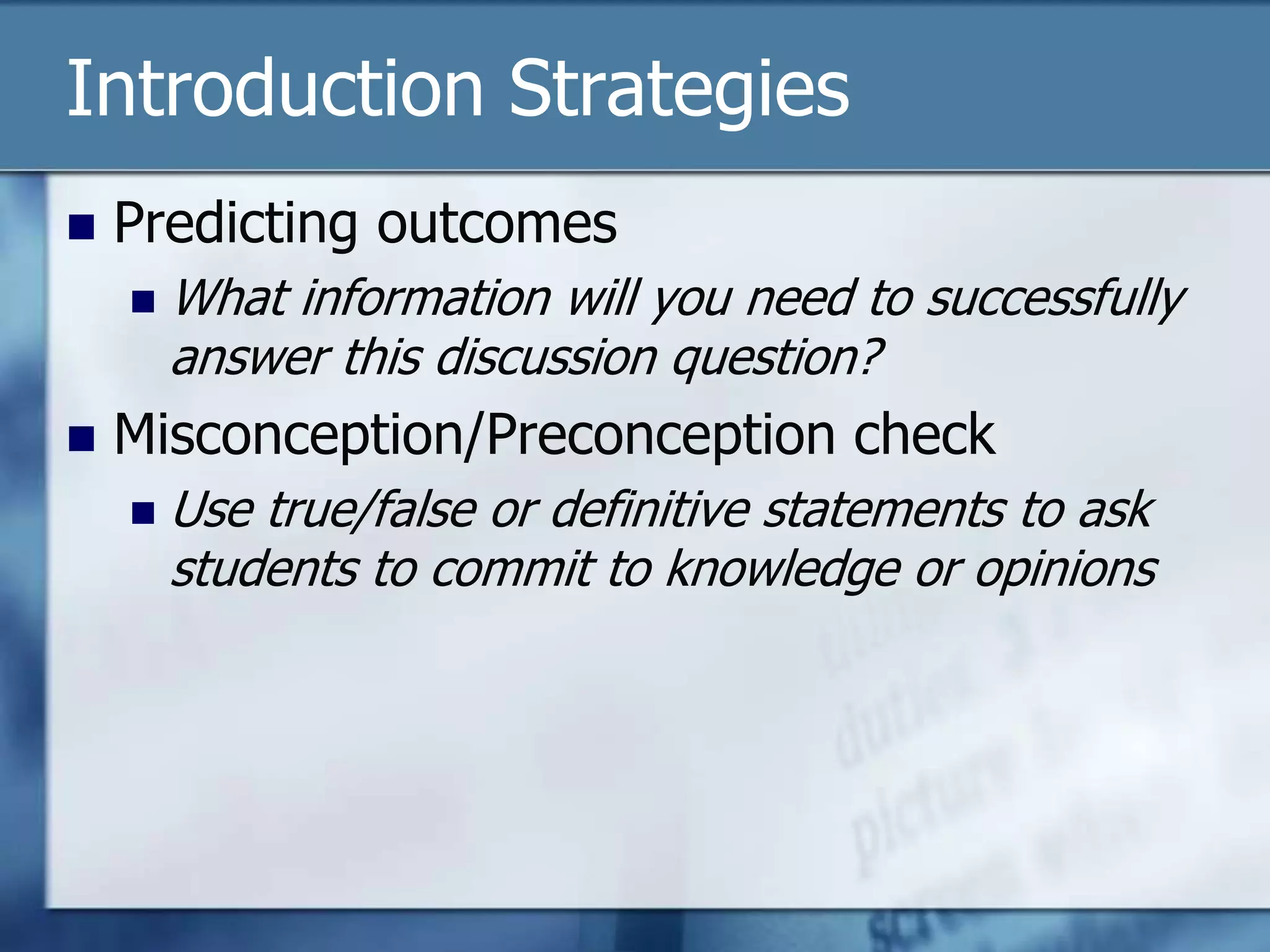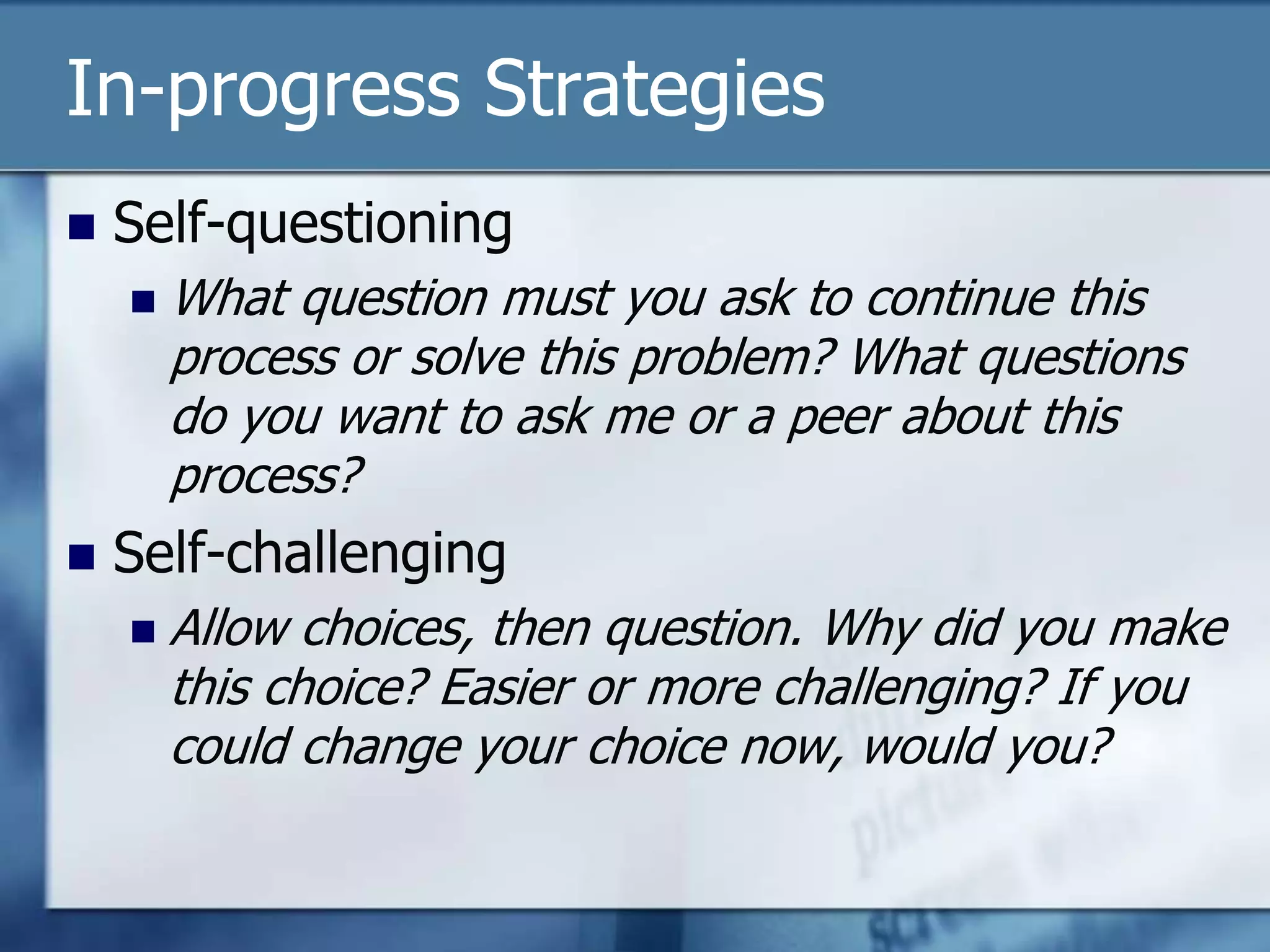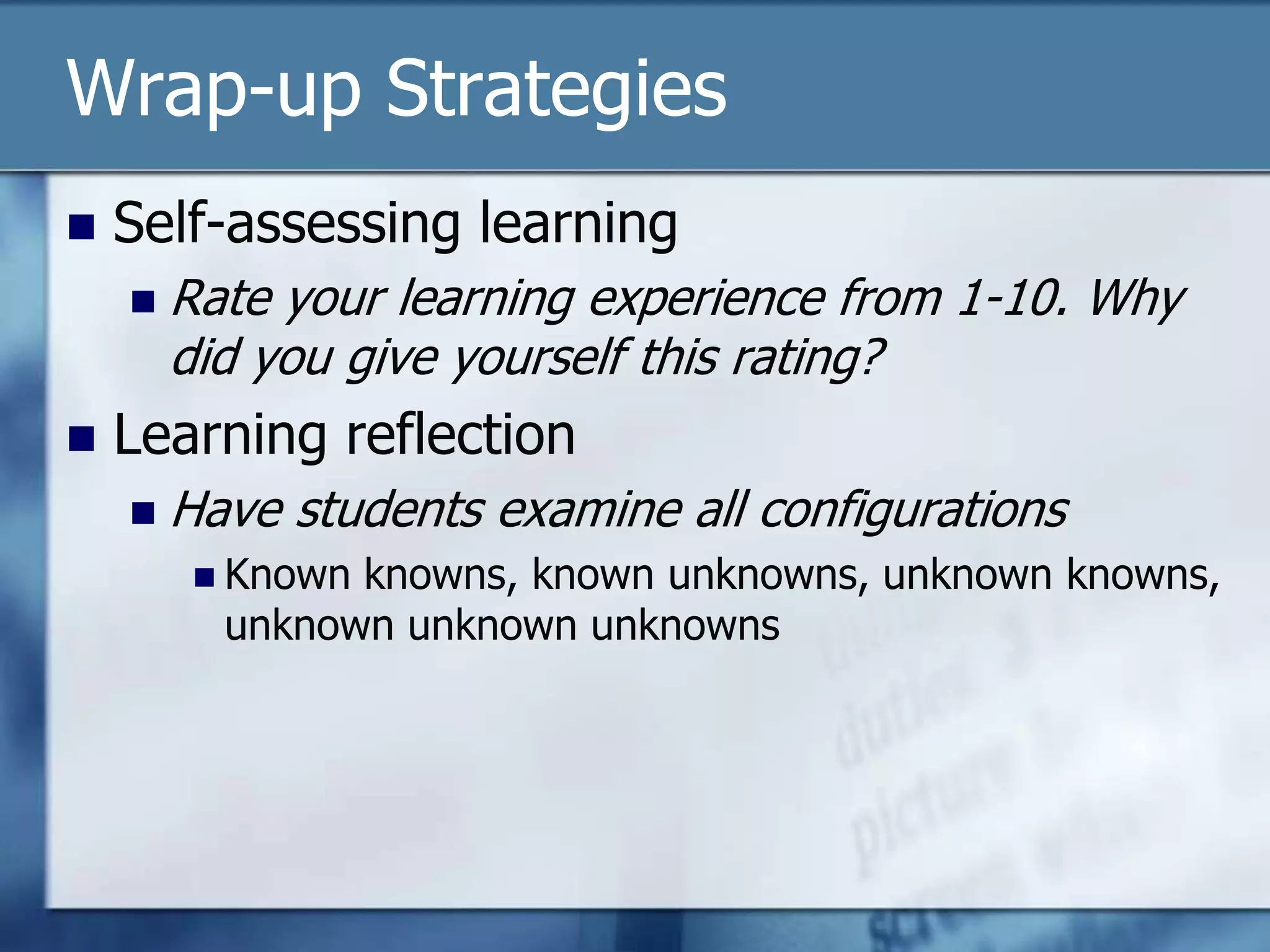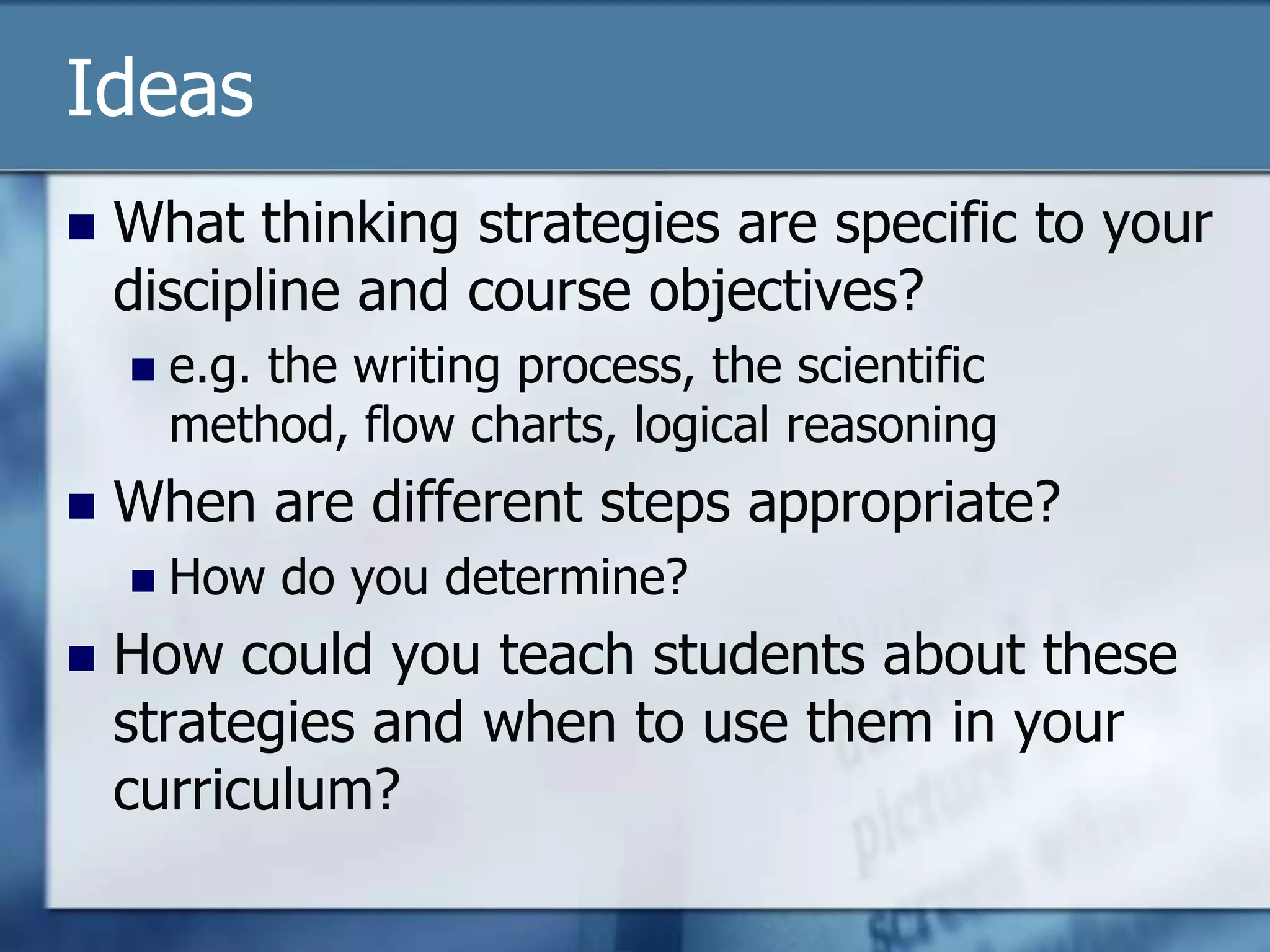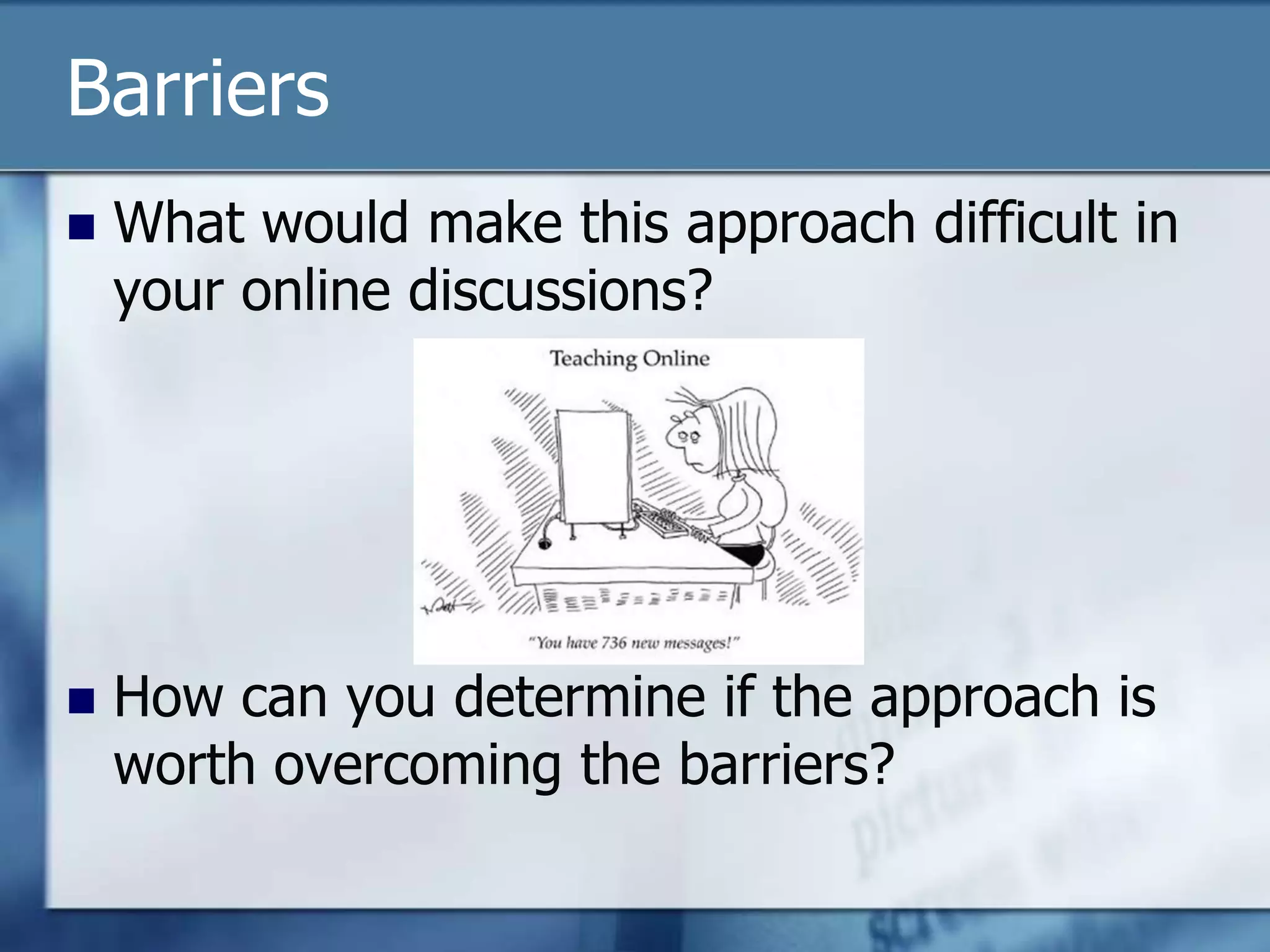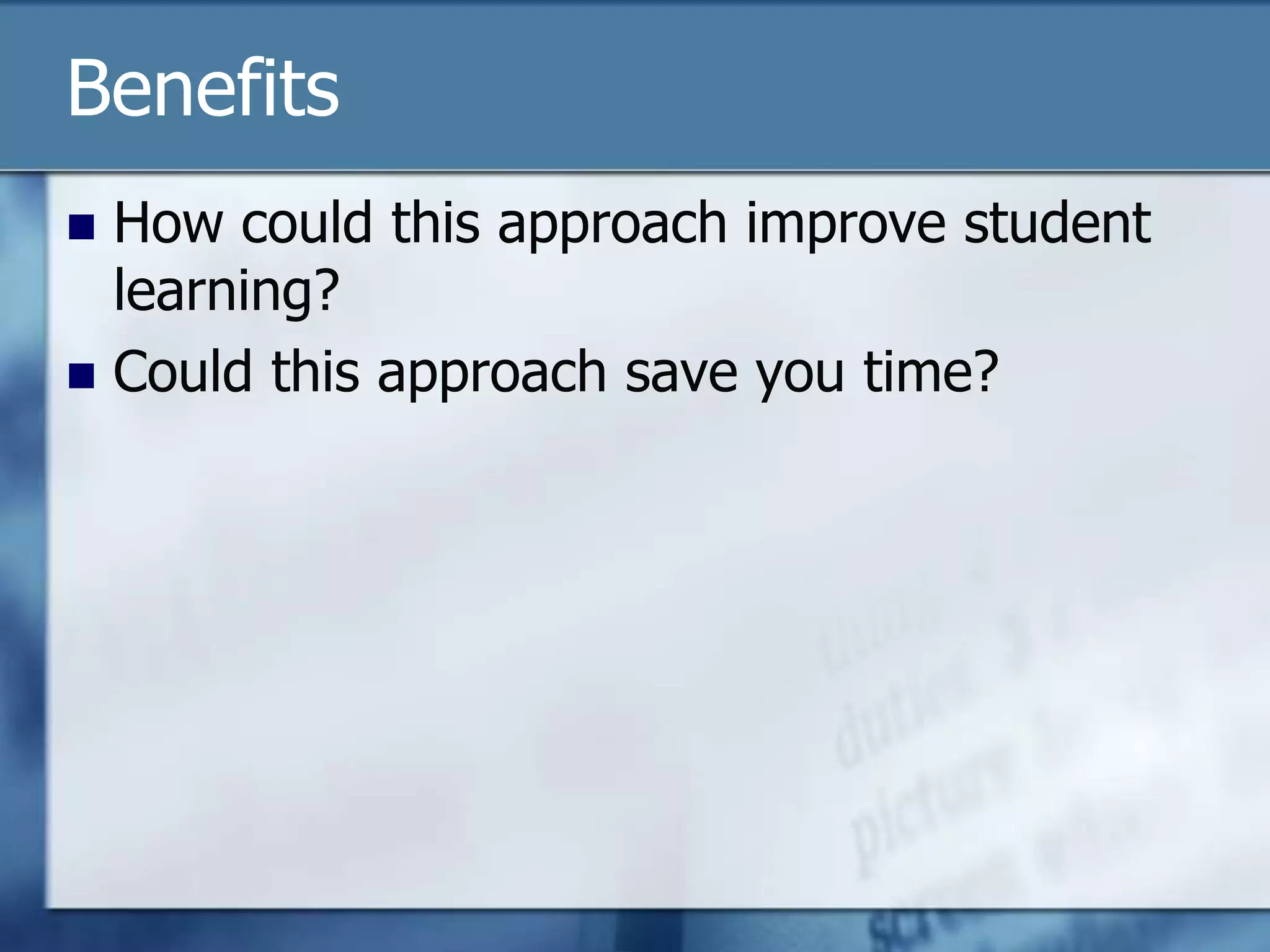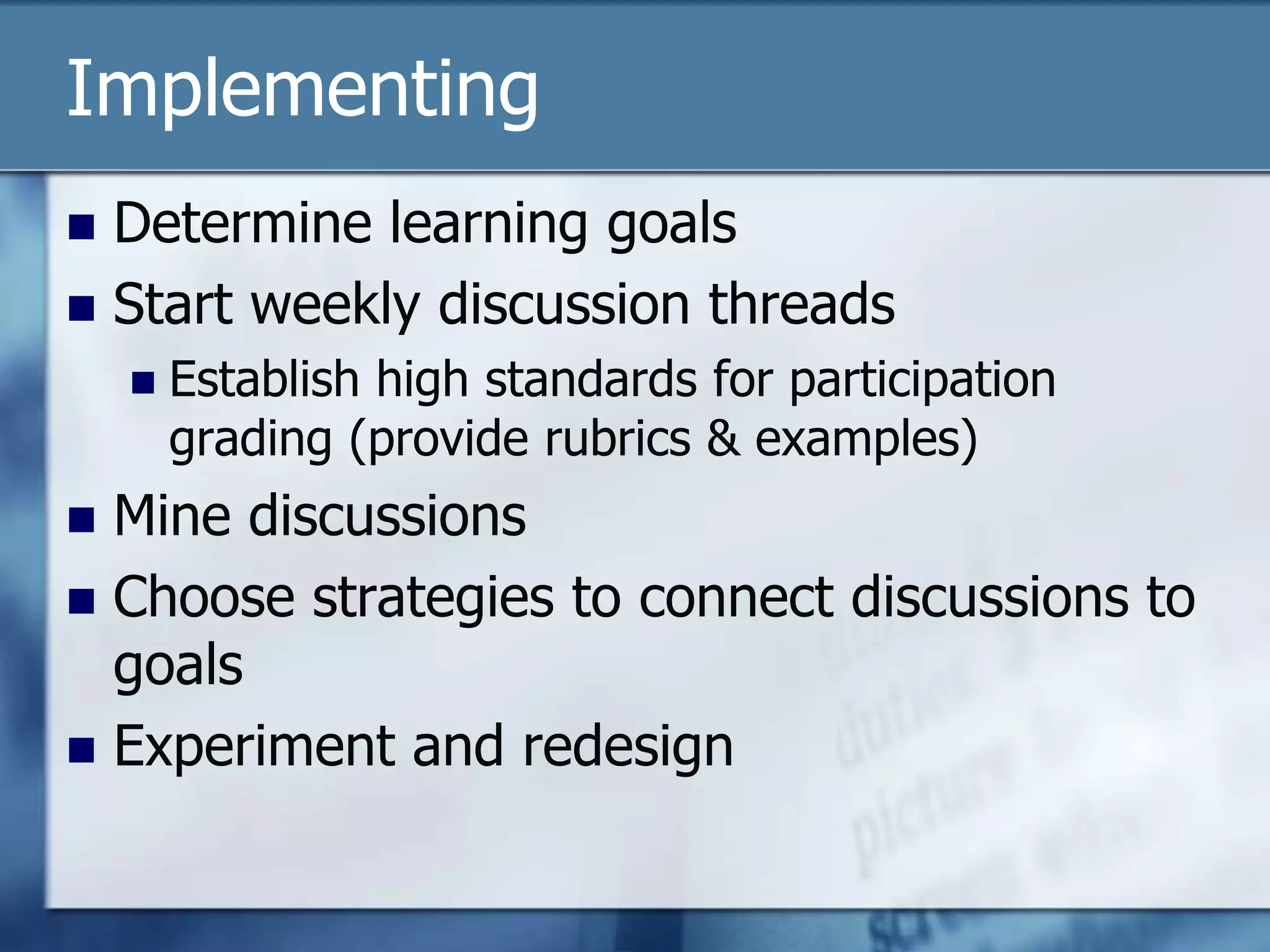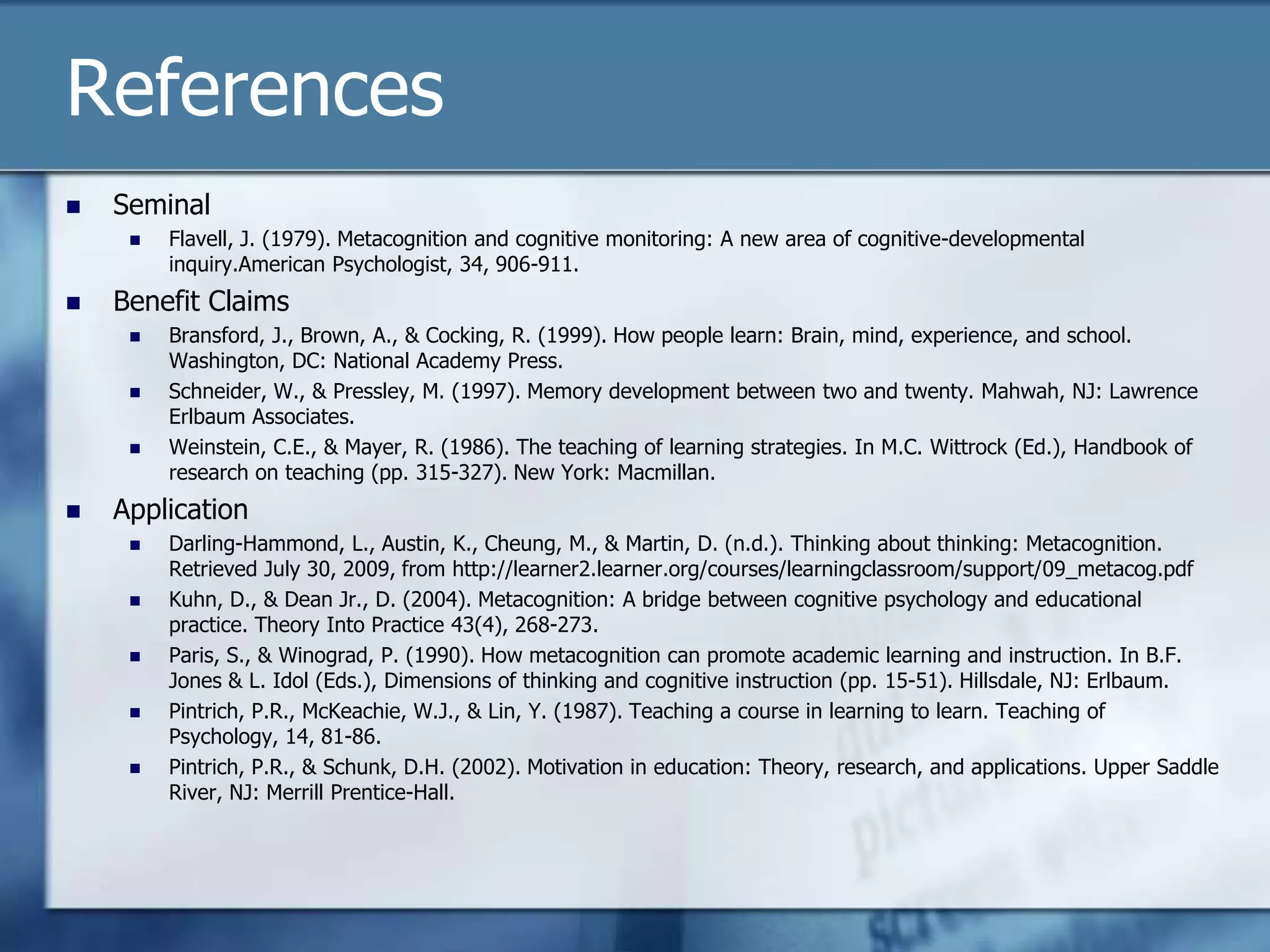This document discusses metacognition and strategies for facilitating metacognition in online class discussions. Metacognition refers to thinking about one's own thinking. The benefits of metacognitive strategies include increased material comprehension, better alignment with assignments, improved discussions, and stronger arguments. The document provides examples of metacognitive strategies that can be used at different stages of online discussions, such as predicting outcomes, self-questioning, and reflecting on learning. It also addresses barriers to implementing these strategies and how to determine if overcoming those barriers is worthwhile.
